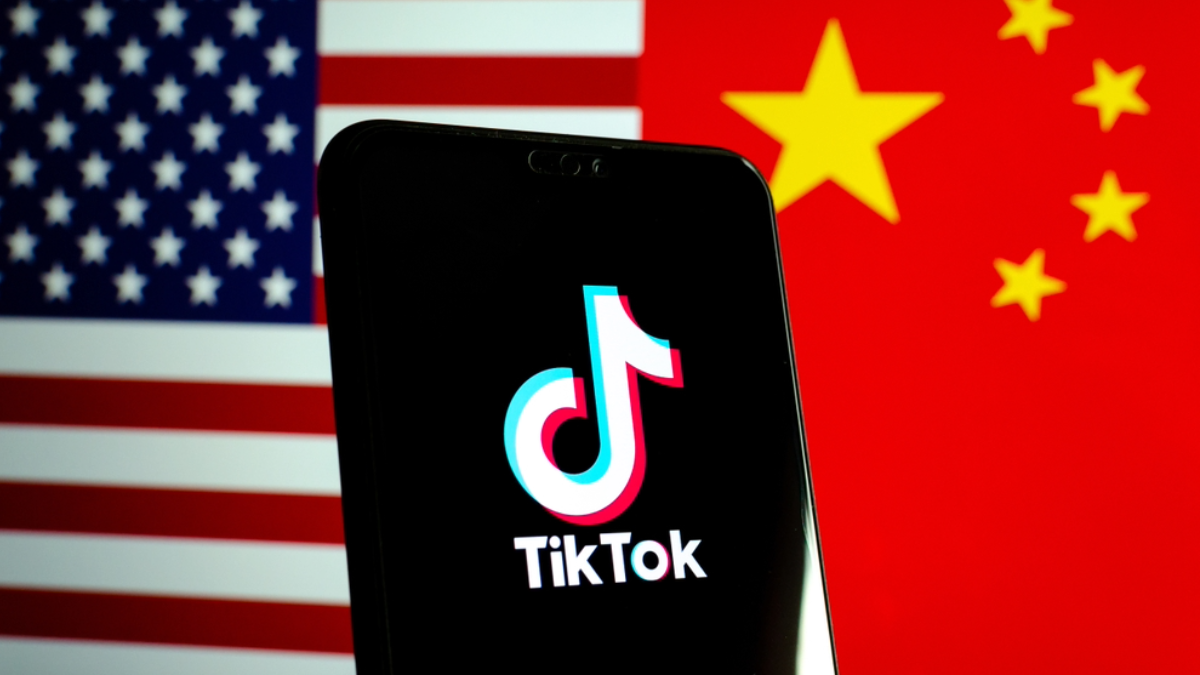Is TikTok an Early Casualty of the China-US AI "Cold War"?
José Marichal / Apr 26, 2024In a 2010 speech at the now-defunct Newseum in Washington DC, then Secretary of State Hillary Clinton gave a speech outlining the “freedom to connect,” making a commitment to a set of digital rights that include the right to “freely access information.” In that speech, she rebuked China for its “censorship of the Internet,” chiding the Chinese government for restricting free access to information and violating the basic rights of internet users. She warned China could “risk walling themselves off from the progress of the next century.”
Oh how long ago that seems.
On Monday, the US Senate passed – and President Biden signed – legislation requiring ByteDance to sell the social media app TikTok within 270 days (extendable up to a year) or run the risk of seeing the app banned. This action, to put it mildly, is out of step with a global “freedom to connect.” But it may signal the beginning of a new phase in a China-US tech “cold war,” a narrative frame in which the two nations appear to be organizing themselves. But are there alternatives?
A TikTok ban would be a death blow to the dream of an open internet
How have we moved from a commitment to unmitigated internet freedom in the early 2010’s, to, in effect, censoring a wildly popular social media platform solely because it is from a rival nation? Not that long ago, the United States saw the Internet as the path to what Karl Popper called an open society, one informed by increased interconnection in terms of trade, ideas, people and cultures. The internet was the symbol of Francis Fukuyama’s oft cited observation that liberal capitalism was the “end of history.” There was an inevitability to technology’s gravitational pull towards interconnection and the “breaking down of nation state barriers.”
As we learned during the 2016 US election, nation states had other ideas. In a very useful 2015 book, The Real Cyber War, Michael Jablonski and Shawn Powers take issue with Hilary Clinton’s speech on the “right to connect.” They argue that “cyberspace” was no different than any other geopolitical arena. It was subject to the same geo-strategic wrangling that existed between nations before the development of the World Wide Web.
Almost a decade later, Powers and Jablonski’s warnings are prescient. Liberal democracy is in decline around the world and the Internet is seen through the lens of corporate behemoths, addicting engagement algorithms, a dizzying disinformation environment, and the looming specter of the AI bogeyman. Some believe a new AI cold war is underway between China and the US.
It is against this backdrop that we struggle to understand the decision to potentially force a ban of TikTok. The rationale from Congress is unclear. Presumably there are some valid national security concerns. As a Chinese company, all the data TikTok collects could be theoretically accessed by the regime, since private corporate ownership is a misnomer. In addition, the obfuscatory nature of its algorithm makes it difficult to know how propaganda is being spread. Perhaps Congress and the White House have been spooked by top secret intel on how TikTok is being used in the US. But as Justin Hendrix and Ben Lennett argue on Tech Policy Press, lawmakers have an obligation to let the public know the basis for the ban.
In the absence of such disclosures, there is reason to be skeptical of this position. As several scholars have astutely pointed out, the US is one of the countries with few regulations on the sale of citizen data from data brokers to other nations. In March, President Biden issued an executive order to restrict the sale of some citizen data directly to China. But, as James Andrew Lewis of CSIS points out, If the Chinese government wanted to gain access to information on Americans, it could just buy it from a third party. The language included in the foreign aid package which limits what data brokers can sell to certain adversarial countries will do little to address this reality.
The second point regarding propaganda is also hard to prove. In December 2023, the Network Contagion Research Institute at Rutgers University issued a white paper purporting to show that TikTok hides negative stories about China, and perhaps of more relevance, showed that TikTok users saw more pro-Palestinian posts and more anti-Israel posts when compared to Instagram. This study, however, has been criticized, for its methodological choices. This doesn’t discount the possibility that TikTok users are getting a one-sided view of different global conflicts, but no matter the strength of the evidence it hasn’t stopped voices on the left and the right making claims about it. A Truthout article last week implied that TikTok’s ban was on the chopping block because it’s exposing the “truth about Gaza” to impressionable youth. There is some proof of that in statements by US Senators arguing in favor of the TikTok legislation, including Sen. Josh Hawley (R-MO), who sent a letter to the Biden administration last year arguing the platform is actively distorting views of the Israeli war in Gaza, in line with Chinese foreign policy goals.
The White House might calculate that being “tough on China” is good politics. But any advisor with this view should have seen the crestfallen faces on my students when I broke the news to them on Wednesday morning. My students make compelling arguments against a ban. They rightfully argue that “if they really wanted my data, they can get it anyway.” They are unpersuaded by claims that this is a pressing national security issue. For a White House that is already struggling with Gen-Z, this policy position is “sus.”
Perhaps the White House can take the hardline position knowing that the law will be litigated to death, thereby tying up implementation of the divestment for years, and making a ban unlikely.
A tech cold war is good for business
But there is a simpler answer: policymakers in Washington are persuaded by the story that we are in a tech cold war with China. The idea of a “Cold War” is a powerful framing. AI winter harkens back to the “Nuclear Winter.” We use the past to make sense of the present. But why this story about technology and competition between nations?
A cold war framing is rooted in classical realist visions of the world in international relations. For realists, the world is anarchic. Nations have nowhere to turn to save them from external aggression. As such, they need to view the world as full of threats. The rise of China falls under a specific kind of trap devised by Graham Allison called the Thucydides Trap, where a world power and an emerging rival will inevitably go to war with one another.
This framing makes a lot of sense for decision makers. No one wants to get caught off guard. The world does include global threats. Better to be prepared for a threat that doesn’t come than to ignore a threat that does.
It doesn’t hurt that this narrative is advantageous to American tech companies. The more these companies are at the center of a national security strategy, the greater the funding and control. But this doesn’t mean that there is a mustache-twirling conspiracy. There could be a convenient confluence of world views. A tech cold war view might be advantageous financially, but it also gives great power to tech company leaders. As Cambridge’s Verity Harding points out in a recent podcast discussing AI, “everyone wants to be Oppenheimer.”
Some would have you believe that the “Cold War’ frame is just common sense, or that an “anarchic world” is just steely-eyed pragmatism. But for all the logic this approach has, it also comes with liabilities. How much time and treasure is spent bolstering defenses? A realist view pays little attention to the ways in which global cooperation and coordination has borne fruit, focusing only on the ‘risks’ and ‘threats’ ahead.
Searching for alternatives
Another view in international relations, constructivism, contends that systems are shaped by shared ideas that aren’t essentially rooted in human nature. A tech cold war is just a story we tell ourselves about how the world works. But if this story has inherent flaws, what other metaphors could we use?
In a newly published book, Verity Harding gives us a different metaphor to explain our technological moment. She suggests the space race rather than the nuclear arms race. She claims that the broader world of scientific discovery is rooted in cooperation. Even if there was a competition over scientific advancement, there was also a great deal of collaboration. One modern non-space example is the International Thermonuclear Experimental Reactor (ITER) project in France, being constructed with the purpose of solving the puzzle of nuclear fusion (e.g producing a much safer and cleaner energy source than fission). The project is a collaborative effort led by teams from China, the European Union, India, Japan, Korea, Russia and the United States.
For a constructivist, what prevents us from changing the narrative on technology is our imagination and our willingness to see the world differently. As a famous title of a paper by international relations theorist Alexander Wendt goes, “anarchy is what states make of it.” If we don’t challenge the “cold war” narrative, this will be the first of many restrictions on technology in ways that may ultimately be detrimental to American interests.
Authors

